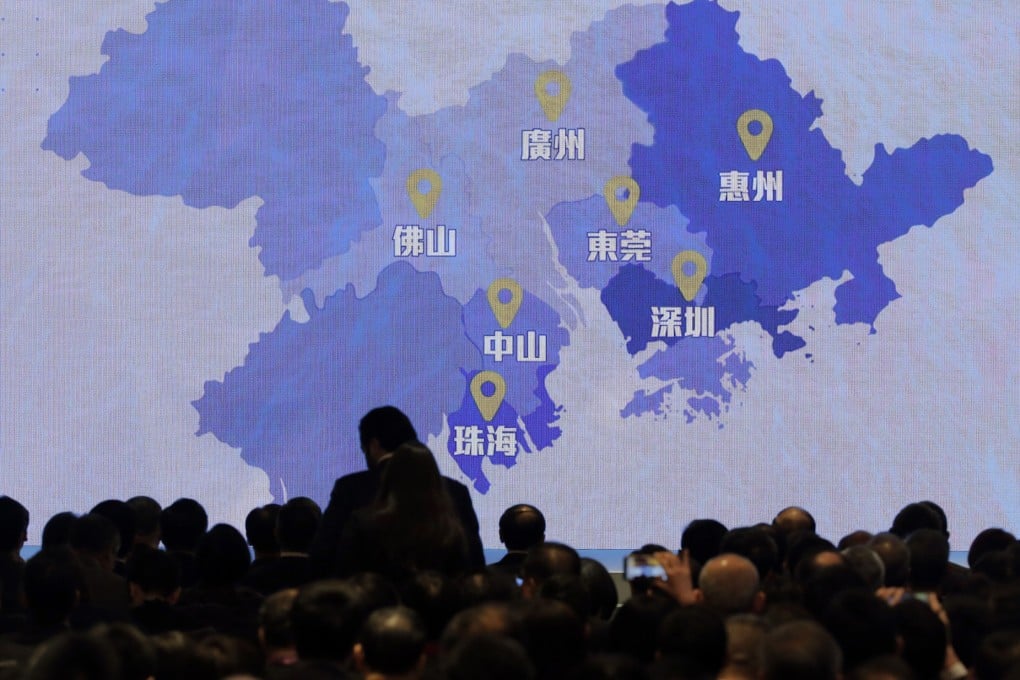Exclusive | Hong Kong’s exit from recession is in the market, space, jobs and labour force of the Greater Bay Area, financial secretary says
- A HK$100 million grant to fund start-ups is still up for grabs for Hongkongers to establish businesses anywhere in the GBA
- As at the end of last year, 69,292 Hong Kong companies set up in GBA with investment at US$344.37 billion (HK$2.67 trillion), with Guangzhou ranked top

The Greater Bay Area (GBA) of southern China can provide Hong Kong with the potential market and the growth driver for taking the city’s economy out of its worst recession in decades, and a grant by local authorities to funds start-ups is still up for grabs, said Financial Secretary Paul Chan Mo-po.
“A key advantage of the GBA development is [its potential] to expand the living and development space of Hong Kong residents,” Chan said in a 15-page reply to query by South China Morning Post. “As a ‘one-hour living circle’ within the Area has basically been formed, the choices of living, working and studying in the other cities of the GBA have become viable for more people in Hong Kong.”
The cluster of 11 cities, with a combined population of 72 million residents and an economy estimated at US$1.65 trillion – equivalent to the world’s 11th-largest economy behind Canada and ahead of Russia, if it were a stand-alone entity – provides a potential market 10 times the size of Hong Kong. There is also ample land, and access to labour that can ease the two biggest headaches for most start-ups: real estate prices and staff cost. Combined with cultural familiarity and a shared dialect, Hong Kong is in a unique position to take advantage of the GBA’s benefits, Chan said.
